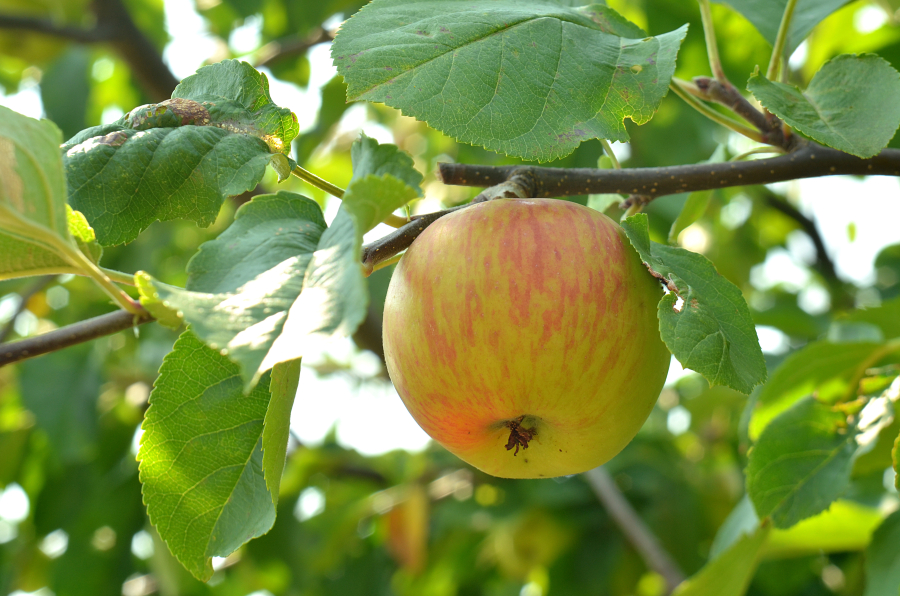Eating and cooking apples may be substituted for one another when necessary, but if using eating apples, lower the amount of sugar called for in your recipe. Most sweet apples, except for red delicious — which is strictly an eating apple — can be considered multiuse. Use them for making either apple cider or applesauce or blend them with tart apples in pies and crumbles for a sweeter taste. Most cooking apples will be quite tart when eaten fresh but add a nice tartness to salads or snacks. They also pair well with brie and goat cheese.
When buying apples, choose ones that have shiny skin, are firm and free of bruises and damaged skin. Shriveled skin means an apple is overripe or old. Various varieties may be softer than others. Store your apples on the counter for no more than three or four days — apples ripen quickly. For longer term storage, place apples in a perforated bag in the refrigerator. To keep apples for an extended period of time, wrap each one in newspaper and store in a dark, cool place such as the cellar or the garage. Keep them away from other fruits and vegetables. Apples give off a gas that will ripen them.
Cooking apples can be eaten fresh, baked, sauced, frozen, canned, dehydrated or made into apple juice or cider. Among the many varieties of cooking apples, Gravenstein and Lodi are local favorites along with Akane, Rome, McIntosh, Jonagold, Jonathan, Pink Lady and Braeburn. My personal favorite is Granny Smith, which was actually developed by Mrs. Smith in Australia in 1868.
When slicing apples, always place apples in an ascorbic acid solution or a commercial product containing ascorbic acid. Or you can make your own solution of one part lemon juice to three parts water. To freeze apples, peel, core, slice and pretreat. Freeze on a cookie sheet and then bag. I like to prepare apples for pies by adding 2/3 cup sugar to 6 cups of apples, mix well and put into freezer bag. When thawed, add spices and thickener, and your pie filling is ready. To dehydrate apples, peel (optional), core, slice 1/4 inch thick, pretreat and dehydrate 6 to 12 hours or until leathery to crisp with no moist areas in center. When making applesauce, instead of adding water use unsweetened apple juice or apple cider.



